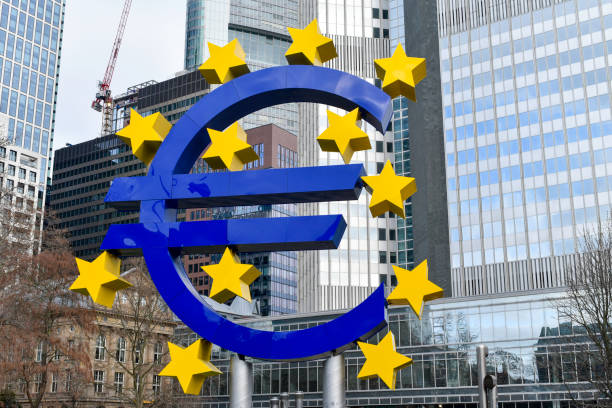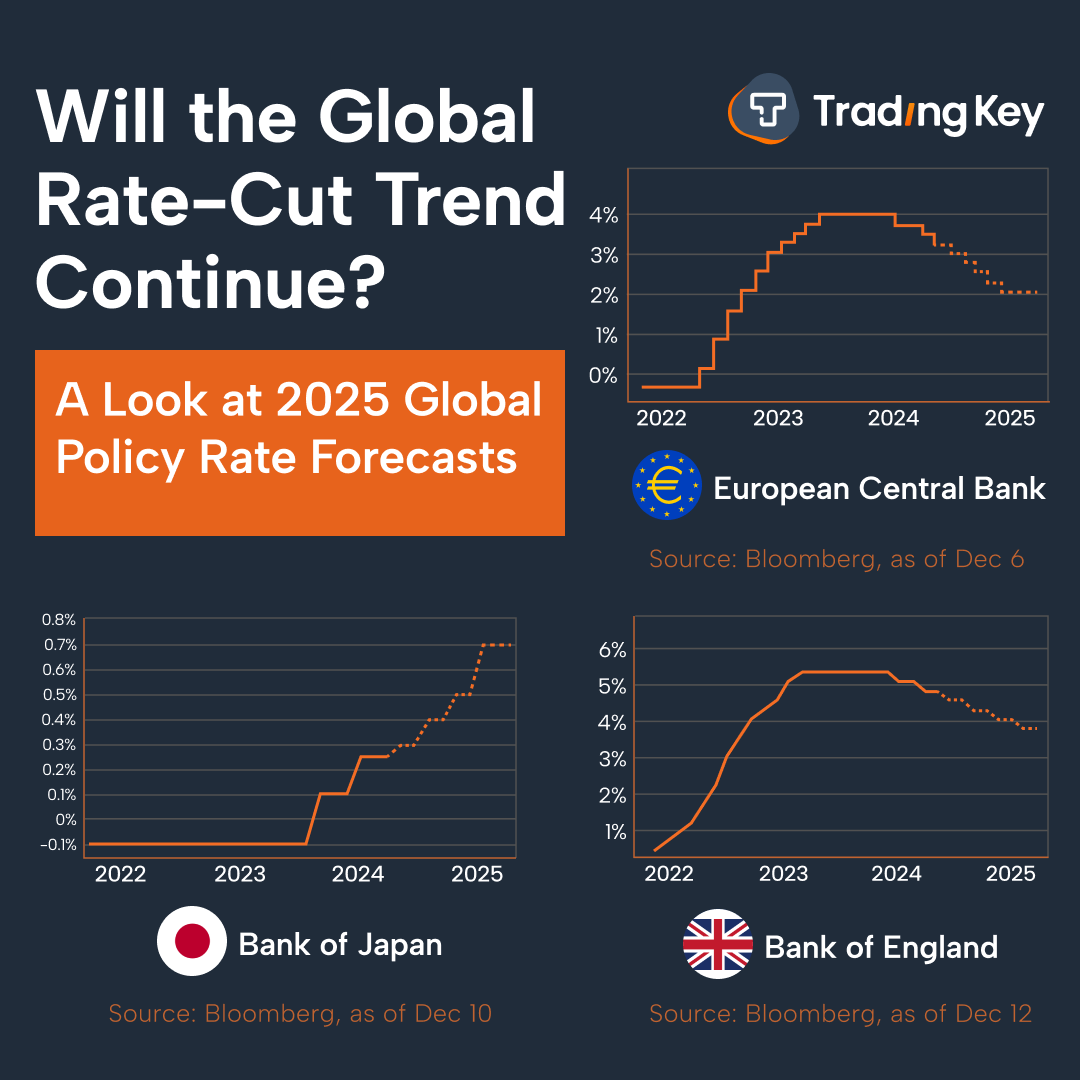What’s the European Central Bank Outlook for Investors in 2025?

TradingKey - Globally, the US stock market and central bank tend to dominate the headlines for investors. But the world is much bigger than the US market. One of the most-traded currencies in the world is actually the Euro and, of course, that is the main currency for the eurozone.
Europe has many listed companies that are well-known brands and that conduct business globally. Being headquartered in Europe, they’re impacted by monetary policy in the euro zone, which is determined by the European Central Bank (ECB).
The European continent (excluding the UK) has been weighed down in 2024 by slowing growth. That’s been reflected in stock market returns, with the MSCI Europe ex UK Index delivering just +2.6% gains so far in 2024 (as of 29 November 2024) versus the MSCI World Index’s +21.9% year-to-date gain over the same period.
So, for investors interested in the region, what’s impacting the European economy and what’s the ECB’s policy outlook for 2025?

ECB already cutting interest rates
While the US Federal Reserve (Fed) has made headlines for its rate-cutting cycle that started in September, it was actually the ECB that began first.
The central bank cut interest rates for the eurozone in June of this year, reducing its key deposit rate to 3.75% from 4.0% previously. It also marked the first interest rate cut by the ECB since 2019 and it came after inflation fell sharply from a high of 10.6% in late 2022 to just above its 2% target earlier this year.
Since that first rate cut in June, the ECB has cut its benchmark interest rate a further two times – both by 25 basis points (bps) – so that its deposit rate now currently sits at 3.25%.
In fact, investors had already priced in this series of rate cuts given the weakening in the euro zone economy and falling inflation numbers. In September, the ECB cut its 2024 GDP growth forecast for the euro zone to 0.8% from 0.9% previously.
It also said it expects growth to reach 1.3% in 2025 and 1.5% in 2026, rates far slower than the US economy as well as the economies of many Emerging Markets.
Expectations for faster easing in 2025
The market is currently expecting significant easing by the ECB as we head into 2025. On 12 December, the ECB cut its interest rate again by another 0.25%.
According to a Bloomberg survey of economic forecasters, it’s predicted that the ECB benchmark rate will hit 2.0% by the end of 2025, suggesting that expectations are for four more 25 bp rate cuts in 2025.
That implies that the central bank will cut interest rates by 2.50% (from the 4.50% level it stood at earlier this year) in less than 18 months’ time.
Rate outlook depends on inflation and growth
Similar to the US Fed, the ECB will be closely watching inflation. Yet it’s the anaemic growth numbers in the euro zone economy that has policymakers worried.
According to data released at the end of October, the euro zone saw seasonally-adjusted GDP growth of 0.4% in the third quarter of 2024, on a quarter-on-quarter basis.
While this was an acceleration from the 0.2% quarter-on-quarter GDP growth for Q2 2024, there are still worries that its biggest economy – Germany – could continue to see weakness. That throws up a potentially troublesome scenario for the ECB; slowing growth and stubborn inflation or the return of rising prices.
That “stagflationary” scenario is not ideal and the central bank will be closely monitoring inflation and growth as president-elect Trump also takes office in the US. For investors looking to Europe, it’s set to be a volatile 2025.








